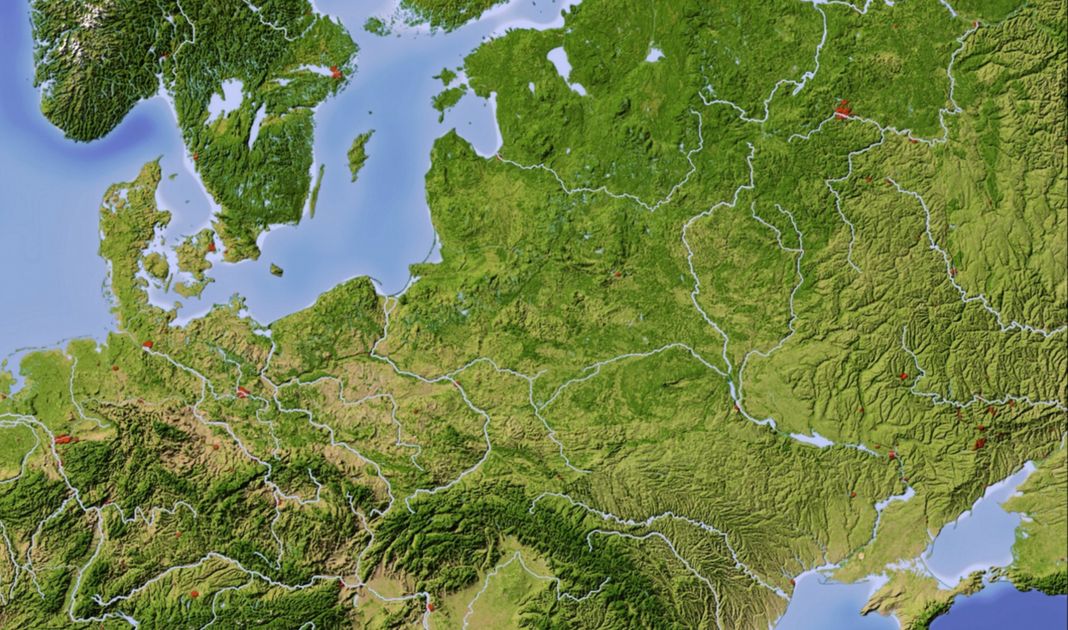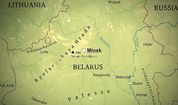Igor Zagrebelny „Międzymorze. Szansa prawie utracona”. Book review

Belarus continues its tightrope walking
The results of the meetings between the two leaders are highly contested. Those dreaming about Belarus without Russia and even the leaders regard the processes that are happening between two countries as irreversible and consider “the divorce” to have taken place, only without juridical formalities. However, for many experts and politicians in Russia and Belarus, the Union State is still alive and will remain. The Union State has now two dimensions, the first of which is institutional: that developed during recent decades in different spheres, from economic to military. The second dimension, much more complicated and unstable, is the political dimension. Here both Russia and Belarus are facing difficulties in adjusting to a common denominator – their national interests. For example, right after Lukashenka’s visit to Sochi, he urged the Belarusians to “Remember, your President will never be the last. After me – you already think about what you will do. But even if I live and will not be president, I will fight for our Belarus and for the country’s right to remain on this patch of land as a sovereign and independent state.” Moreover, he stated that Belarus has a sovereign right to decide its own foreign and domestic policies. In spite of Lukashenko’s bold statements, he and the entire Belarus is deeply intertwined with Russia, who’s hold over the country is far firmer than it was the case in Ukraine. The Belarusian leader clearly cognizes how dangerous of a path lies ahead of him and his country. Energy independence is only a one small step towards true independence. His answer to Putin in Sochi for the question “Why do you not want to buy cheaper oil in Russia?” was “Because we do not want to kneel before Russia for cheaper oil every year on December 31 at twelve o’clock in the morning!’’. Despite these informational wars, the Putin-Lukashenka personal platform still works. For example, Belarus and Gazprom signed a protocol on gas pricing for 2020. An additional aspect that he has to consider is elections this year. Meanwhile, he tries to win over the support of a majority of Belarusians by such patriotic rhetoric.
The system of diversification, according to Lukashenka, of oil supplies to Belarus can be the following:
- Poland, to launch one of the branches of the Druzhba oil trunk pipeline to reverse from Gdansk (oil can be from Saudi Arabia, the Emirates or the United States);
- The European Union, same to use Druzhba pipeline to reverse flow;
- Baltic States (via port of Klaipeda);
- Ukraine up to 30% of oil through the Ukrainian ports in the Black Sea;
- Azerbaijan and Kazakhstan;
- Iran, whose Ambassador has offered Iranian oil as alternative to Russian oil this week;
If Minsk finds an alternative source from more or less friendly countries to Russia, it is possible to predict that Moscow would avoid harsh measures against Belarus. But if Minsk tries to obtain oil by utilizing reverse flow through the Druzhba pipeline, Moscow will definitely react with drastic and belligerent actions. Finally, a Ukrainian scenario, which “selected” (i.e. redirected some of the oil from the pipeline to its own facilities) oil from the Druzhba pipeline. Lukashenka himself hinted at this possibility by sayingthat “if Russia does not supply oil in the required volumes, we will begin the selection from the transit pipeline.”
Countries bordering with Belarus, and Lithuania in particular will look to support its efforts aimed at diversifying oil sources, helping it to negotiate with Moscow on a more equal footing. Lithuanian President Gitanas Nauseda had already offered to Belarus to be an alternative gas supplier. At the same time it should be taken into account that the Moscow-controlled company Gazprom has an ample toolset when it comes to curbing potential competition in Belarus.
Ukraine struggling for economic and military security…
Ukrainian government proposed an exchange of the restoration of water supplies from the Dnieper to the Donbas with the Russian Federation. The Crimean Tatar leader outlined that such scenario is possible only after the de-occupation of Crimea. Before 2014, almost 85% of Crimea’s water supple came from the Dnieper and now Russia is facing tremendous problems with water shortages. Local officials in Crimea stated that they have water reserves for a maximum of 100 days. This month Crimea returned to the fore of political debate in Ukraine albeit mostly from a negative angle. The only Crimean Tatar TV channel “ATR” that has maintained a focus on the Crimean topic throughout the last six years and was therefore the main informational platform on this issue in Ukraine and in the world, remains afloat for now but is under threat of closure. Ukrainian state institutions are not ready to provide ATR with funding, officially due to bureaucratic requirements not being met. It is too early to state with authority that the new administration in Kiev is giving up Crimea, there are some indications that this may be the case.
According to reports by Radio Free Europe, Vladimir Zelensky had a meeting with the Secretary of the Russian Security Council Nikolai Patrushev on January 8, during his visit to Oman. The Ukrainian Administration is yet to comment on this, but this could have significant implications in the near future.
Russia is increasingly closer to providing people from its “Near Abroad”, especially the citizens of Ukraine and Belarus, with Russian citizenship. The State Duma adopted a bill in the second reading that will simplify the procedure for obtaining Russian citizenship for citizens of Ukraine and Belarus, who permanently reside in the Russian Federation and already have a residence permit. In South Ossetia, Abkhazia and Crimea, the Russian Federation undertook such measures and we know well about consequences for the regions. Plus, Russia actively distributes the Russian citizenship in Donbas. The next step has to be an adoption of a new law that will grant Russian citizenship to those people that will decide to keep the citizenship of the country of origin.
The Ukrainian President Vladimir Zelensky is planning to have the next meeting with Vladimir Putin and to discuss the situation in Donbas.
Ukraine continues to sell off its strategic assets to the international business community. This week, a company from the United Arab Emirates, DP World, has acquired a major container terminal in Ukraine. The port – “Pivdenny” is located in the Odessa region, and will now become a part of DP World’s investment portfolio. This acquisition makes it the third container terminal of DP World in the Black Sea region after sites in Constanta, Romania, and Istanbul, Turkey. Ukraine will become the 51st country in the worldwide network of the Dubai-based company.
At the Munich Security Conference, Ukrainian and Romanian authorities agreed to significantly strengthen their cooperation in the naval sphere in order to more effectively counter “common threats in the Black Sea region”. Both Bucharest and Kiev are very concerned about the “belligerent actions” of Russia in the Black Sea.
Estonia is balancing between Moscow and NATO…
US has appointed a new ambassador to Lithuania, Robert S. Gilchrist Soon after assuming his position, Gilchrist outlined an number of issues set to define his tenure. First, the USA hopes that Lithuania will “properly deal” with the fifth generation (5G) mobile communications security and will take into account threats from China when introducing technologies. Second, Washington hopes Vilnius will conclude its utility helicopter program before the end of 2020 (6 Black Hawk helicopters), worth an estimated $300 million; helicopters are to be delivered by 2024. Plus, the Ministry of Defense of Lithuania announced that in June this year France will deploy 300 own soldiers to Lithuania.
In Tallinn, the Baltic prime ministers will meet again in March to look for management options for the joint Rail Baltica project which is facing delays and management issues. The 870-kilometre railway that will connect Estonia, Latvia, Lithuania and Poland is expected to be completed by 2026, but has recently encountered delays and risks of budget overruns. The progress of the Rail Baltica project was one of the key issues during the summit of Baltic PMs in Tallinn this week. It has strategic importance both in terms of the economics and the security of these countries.
In his annual foreign policy address the Estonian foreign minister, Urmas Reinsalu, stated that the country’s foreign policy centers on protecting its national interests in the world. According to Reinsalu, Estonia continues to implement an independent and consistent foreign and security policy, mainly through its involvement in the European Union and NATO. Tallinn believes, that the strong strategic cooperation it has enjoyed with the United Kingdom will continue after Brexit. At the same time, this week the Intelligence Service of Estonia stated that Russia is not likely to attack NATO, but that relations between the West and Moscow remain volatile. The report did state however, that Russia may risk a preemptive military strike on the Baltic countries if it fears escalation of the conflict in any other region.
Moldova is being troublesome
Moldova is set to receive the first tranche of Russian development funds in March. At the end of 2019, President Igor Dodon has stated that Russia is ready to provide Moldova with a loan of $300 million for infrastructure projects. According to the president, Russia will provide Moldova with money on almost the same terms as loans provided by the European Bank for Reconstruction and Development or Romania. It is a continuation of history about a Romanian refusal to provide economic assistance to Moldova because of the political situation in the country. As we can see, Russia immediately exploited the situation in its own favor. Plus, Moldova and Russia are discussing Kishinev’s aspirations to join the Eurasian Development Bank and Moscow promised to help Moldova. Simultaneously, Dodon is blaming the Ambassadors of the European Union for attempts to meddle in the country’s internal affairs. The Moldovan opposition is now in a desperate situation. They even call for the ultimate unification of all oppositional forces in order to defeat Dodon in upcoming elections. The call is named “The Pact Against Dodon.”
Besides Dodon’s pro-Russian moves, Transnistrian authorities recently announced that they would welcome deployment of Russian troops into their “country”/ Currently, there are approximately 400 Russian military personnel stationed in Transnistria; Transnistrian authorities would like to see this figure rise to 3,800 Russian soldiers. This was the response of Tiraspol to Kishinev’s request for a full implementation of the documents that were approved in 1999 at the Istanbul Summit, on the withdrawal of Russian troops from the territory of the Transnistria. Russia declares that she fulfilled all items that were indicated in the 1999 agreement in 2001. Interestingly, Tiraspol does not approve of Dodon’s attempts to circumvent Transnistrian authorities, who would like to hammer out a deal directly with the Kremlin.
Trump is changing his approach towards Eastern Europe
The Trump administration is changing a key exemption to America’s trade-remedy laws to make it easier to penalize about two dozen so-called developing countries, including China, India and South Africa. In doing so, the U.S. eliminated its special preferences for a list of self-declared developing countries that includes: Armenia; Brazil; Bulgaria; China; Georgia; Kazakhstan; the Kyrgyz Republic; Malaysia; Moldova; Montenegro; North Macedonia; Romania and Ukraine.
Autor
Ridvan Bari Urcosta
Senior Analyst at Strategy&Future






Trwa ładowanie...